[알바모집 : O1O-5493-9234] 화성룸보도 화성노래도우미알바 화성보도사무실 화성룸알바
페이지 정보
작성자 el4fnk 작성일25-04-30 20:09 조회9회 댓글0건관련링크
본문
[알바모집 : O1O-5493-9234] 화성룸보도 화성노래도우미알바 화성보도사무실 화성룸알바
? 화성 지역 최고의 알바 기회! ?
**[둘리알바.COM]**에서 믿고 일할 수 있는 곳을 소개합니다!
당신의 소중한 시간, 더 가치 있게 만들고 싶다면 지금 바로 도전해보세요.
안전하고 합법적인 환경에서, 높은 수익과 자유로운 근무 조건을 보장합니다.
?모집 분야
화성노래방알바 / 화성노래방도우미
화성노래도우미 / 화성노래도우미알바
화성룸알바 / 화성룸도우미알바 / 화성룸보도 / 화성룸보도사무실
화성보도사무실 / 화성도우미알바
화성여성알바 / 화성아가씨알바
? 고수익 보장
하루 3~5시간 근무만으로도 당일 고수익 정산 가능
성실히 일하면 월 수익 500~1000만 원 이상도 가능
? 자율 근무 & 초보자 환영
복장 자유 / 외모, 나이 크게 신경 쓰지 않습니다
초보자도 금방 적응할 수 있도록 1:1 케어 시스템 운영
개인 프라이버시 철저 보장
? 이런 분들께 추천드립니다!
자유로운 시간을 활용해 추가 수입을 원하시는 분
단기 고수익 아르바이트를 찾고 계신 분
믿을 수 있는 사무실을 통해 안전하게 일하고 싶으신 분
? 근무지역
화성 전 지역 (동탄, 병점, 향남, 봉담 등 포함)
타 지역 출퇴근 지원 가능 / 숙소 제공 가능 (문의 시 협의)
? 문의 및 지원 방법
편하게 연락주세요! 언제든지 상담 가능합니다 ?
✅ 홈페이지: [둘리알바.COM]
✅ 카톡문의: A5441A
✅ 텔레그램: SEOGOT
지금 바로 연락 주시면 빠른 상담 도와드릴게요!
당신의 새로운 시작, [둘리알바.COM]이 함께 하겠습니다.


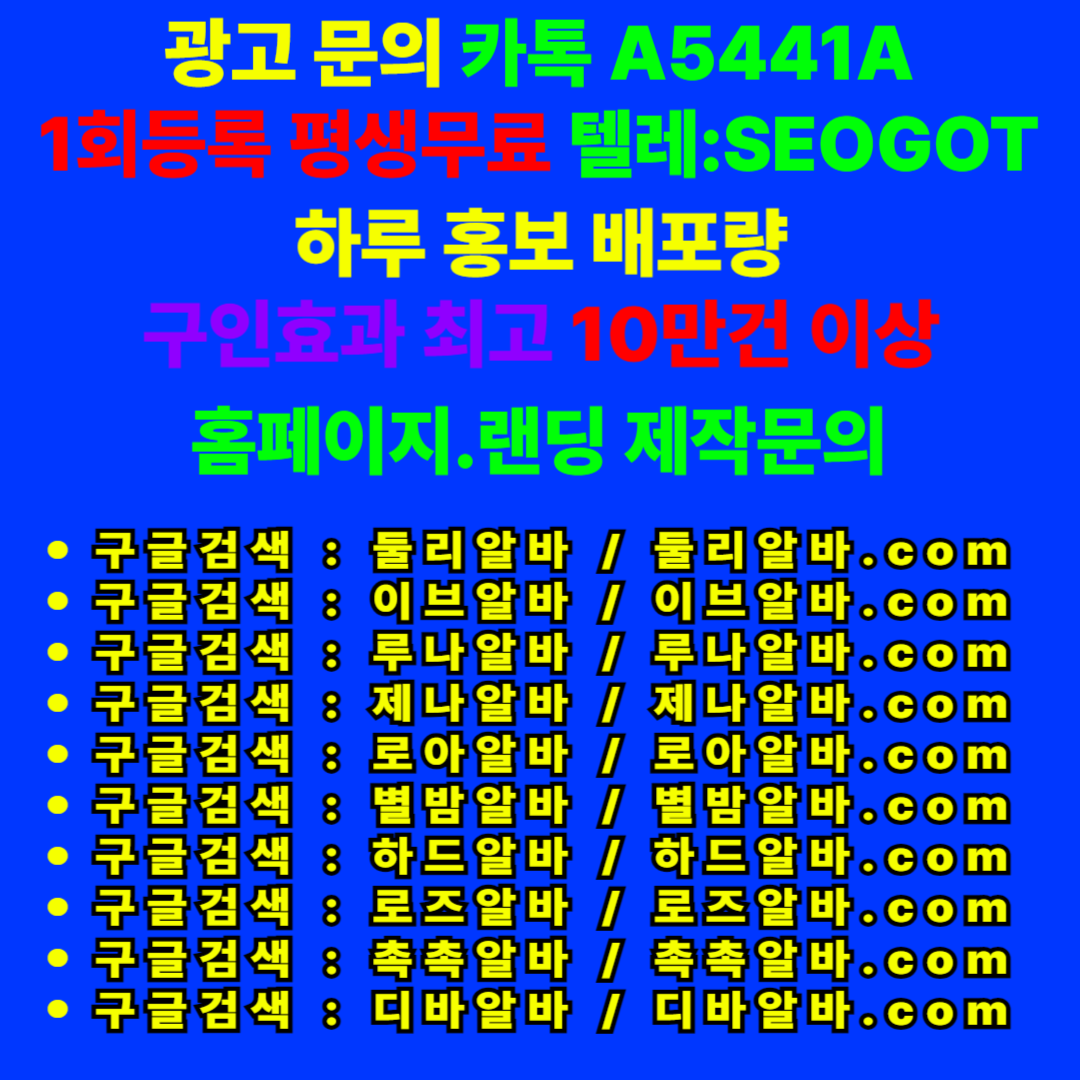
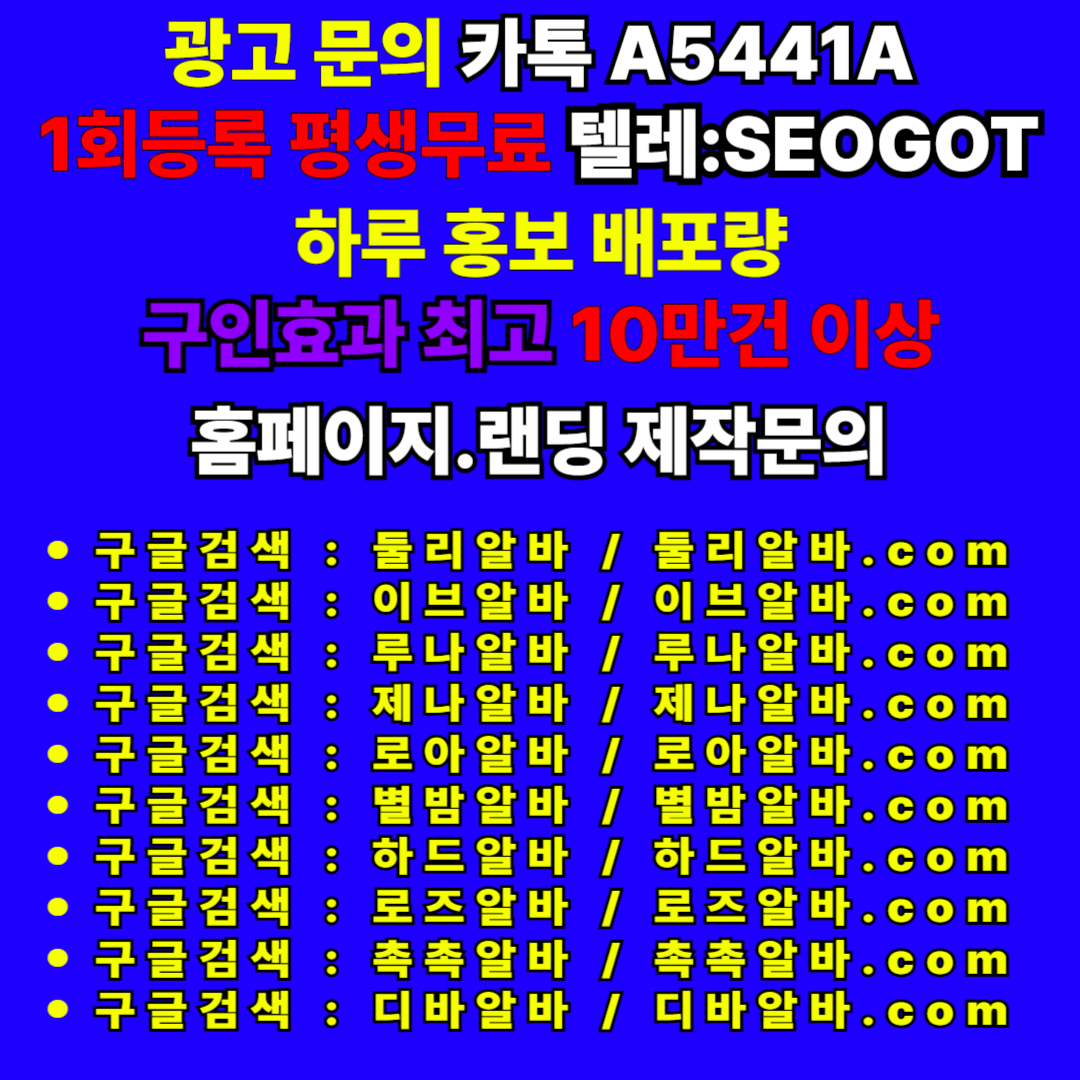
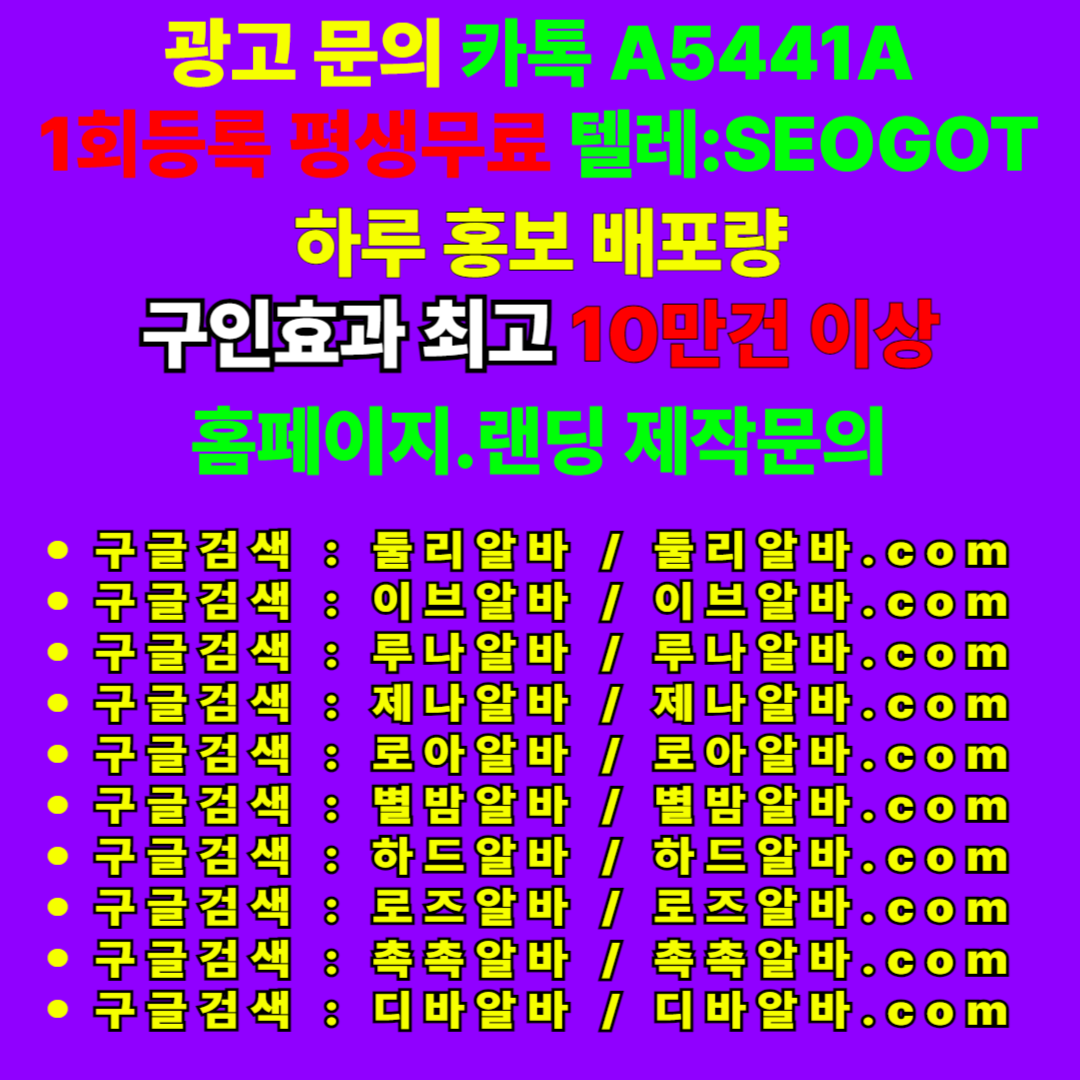



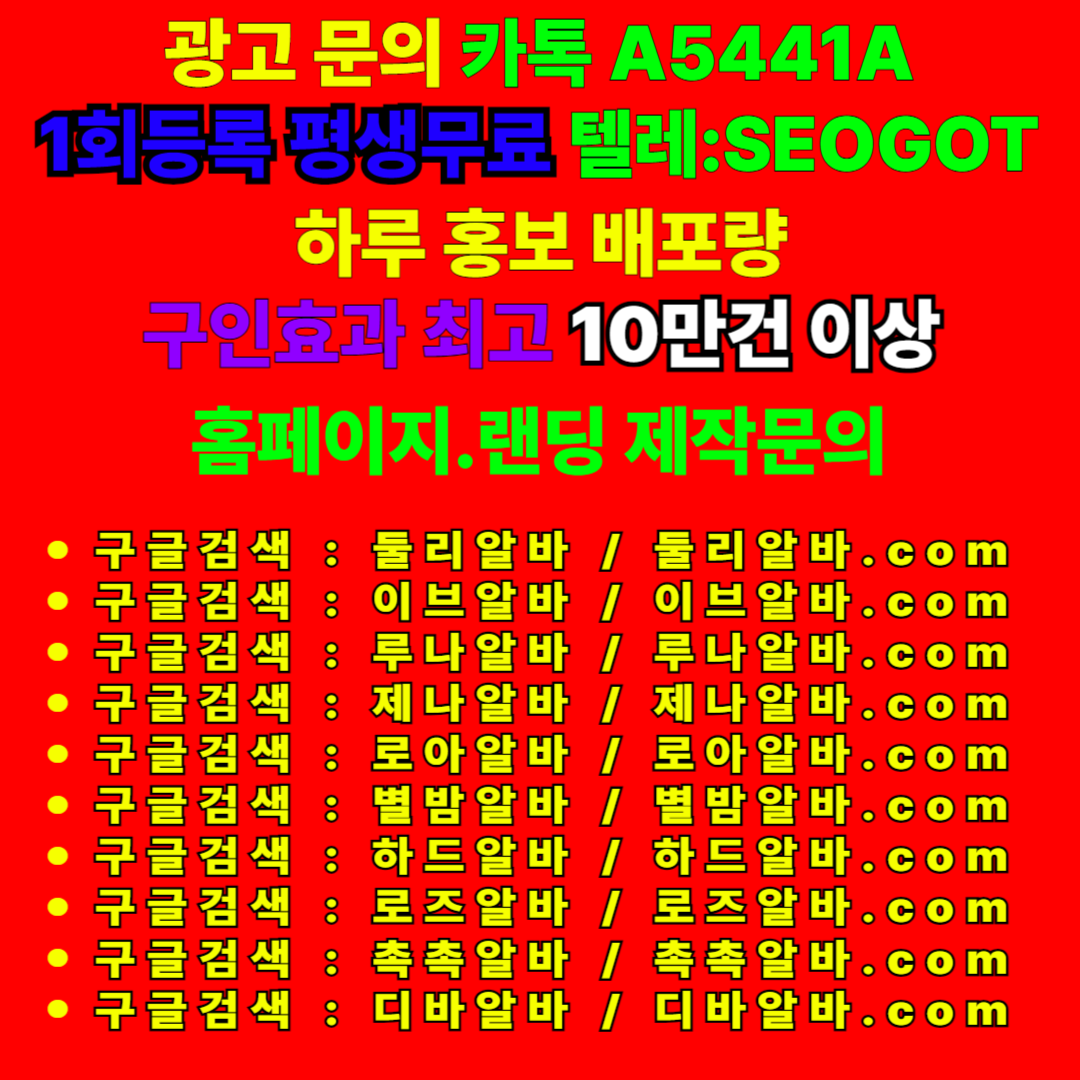
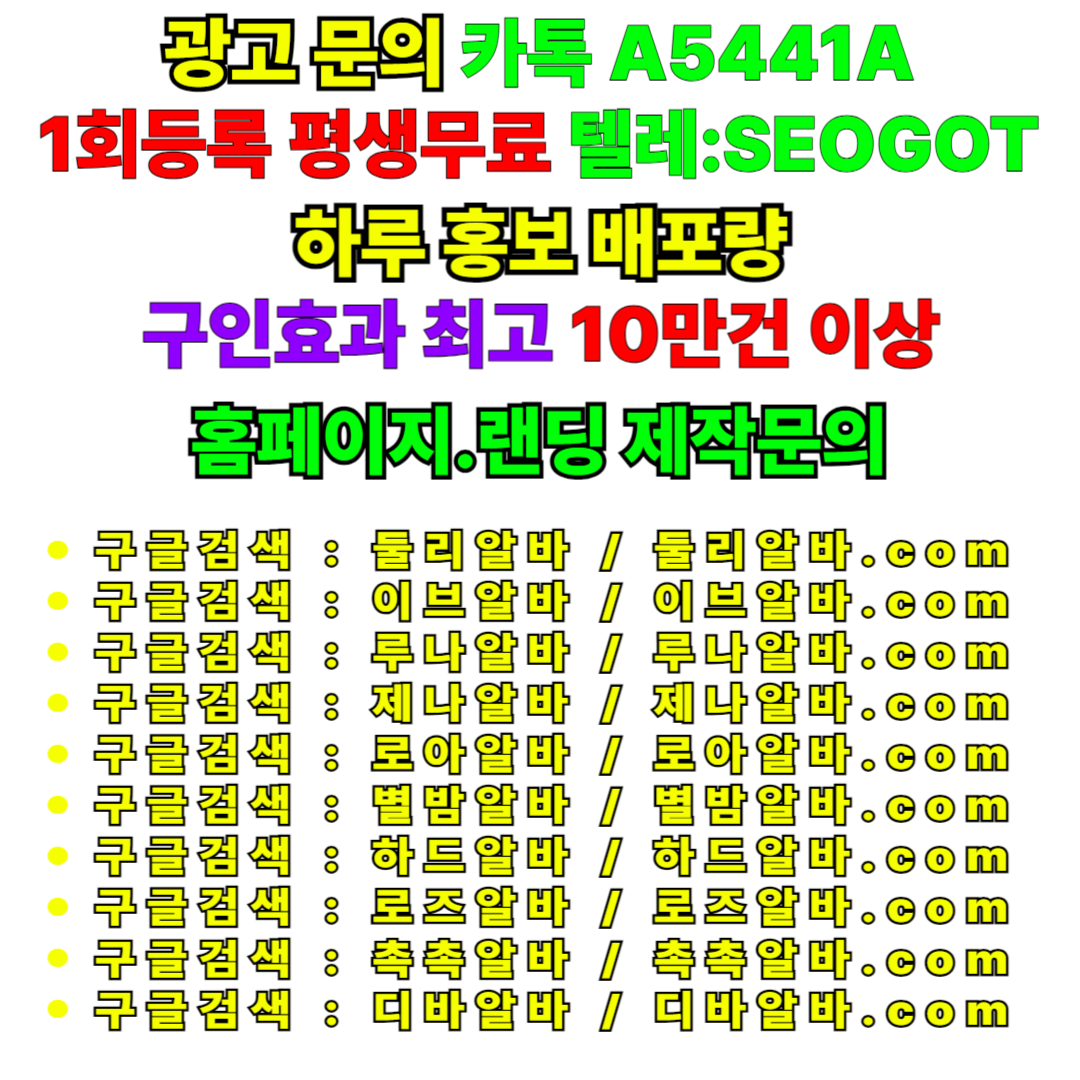
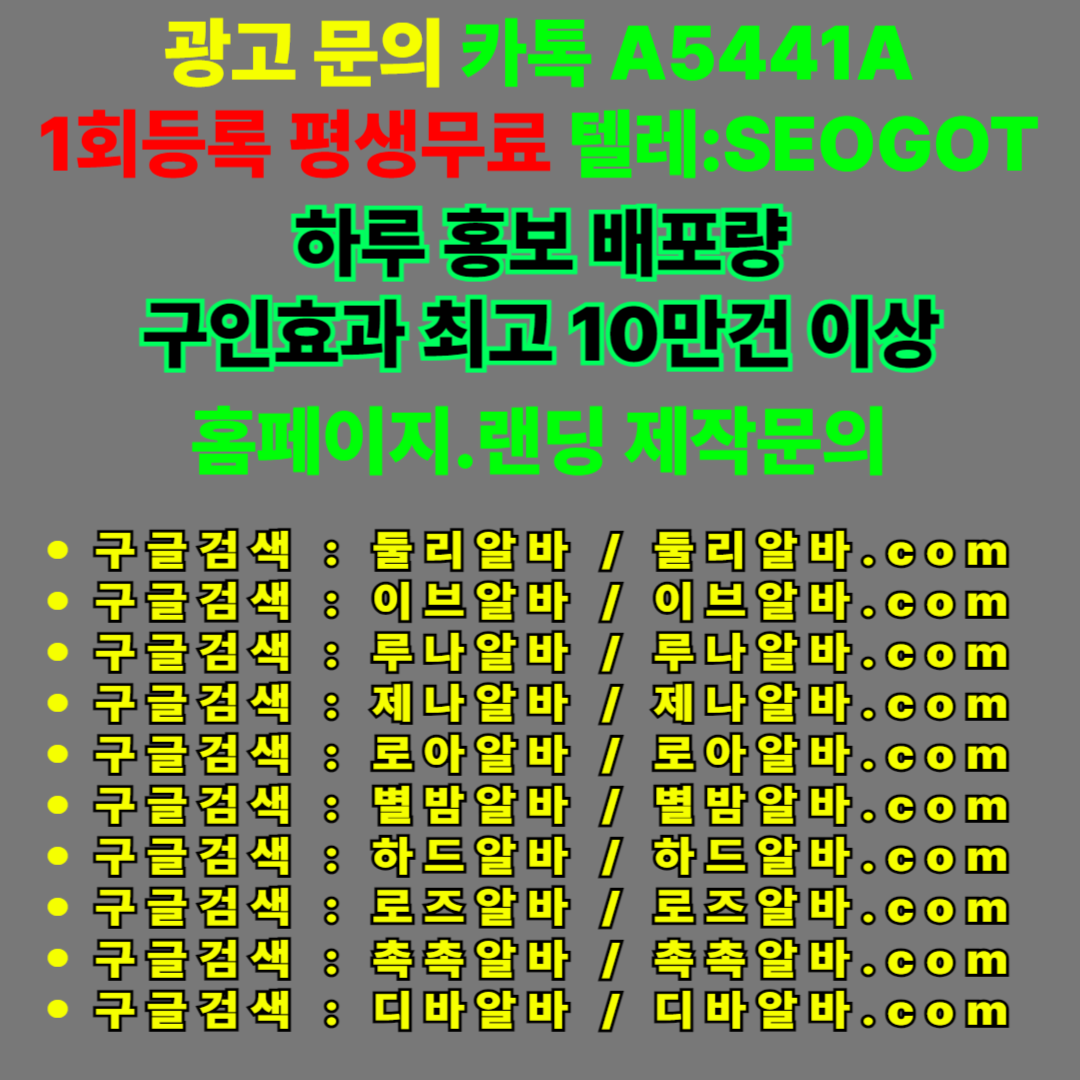
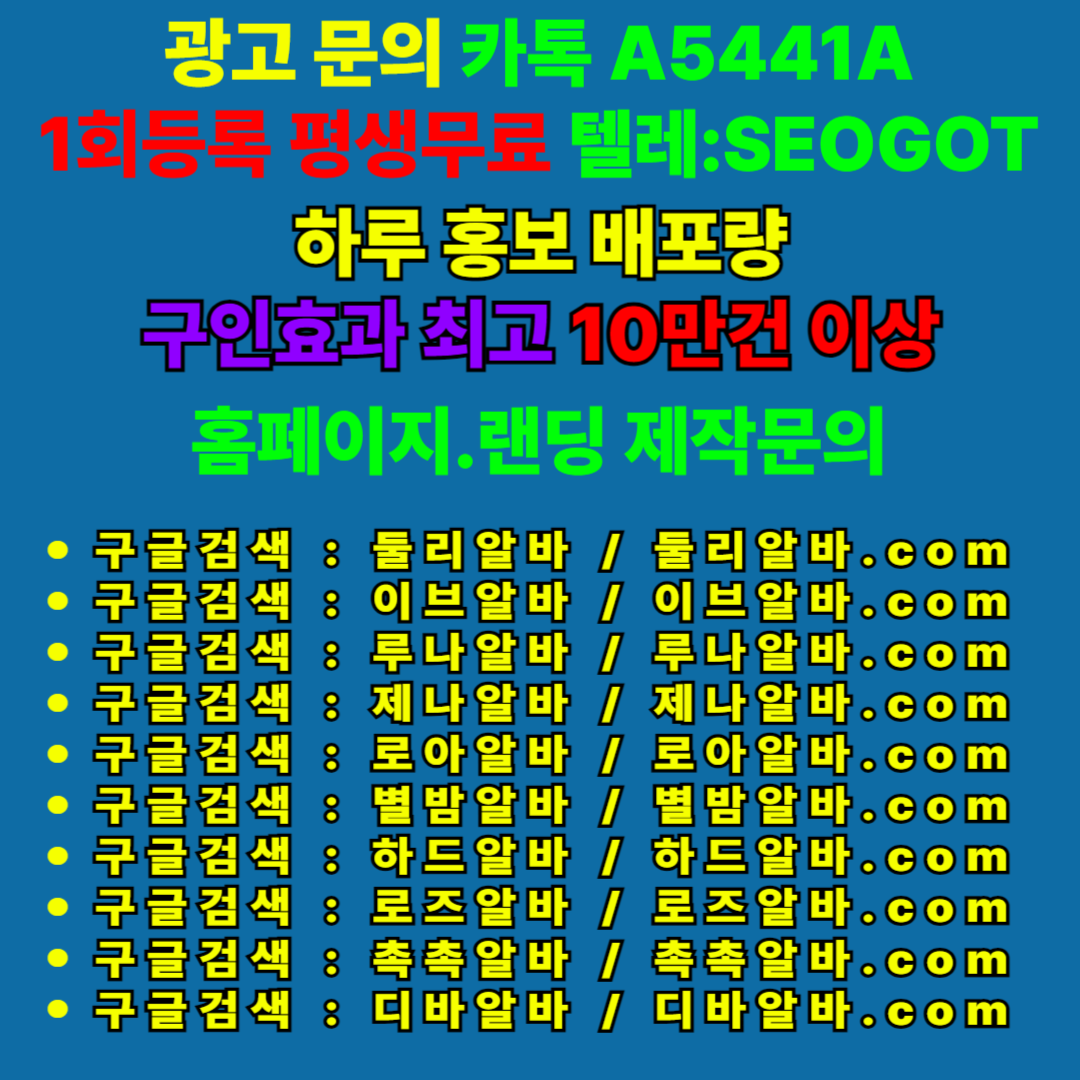
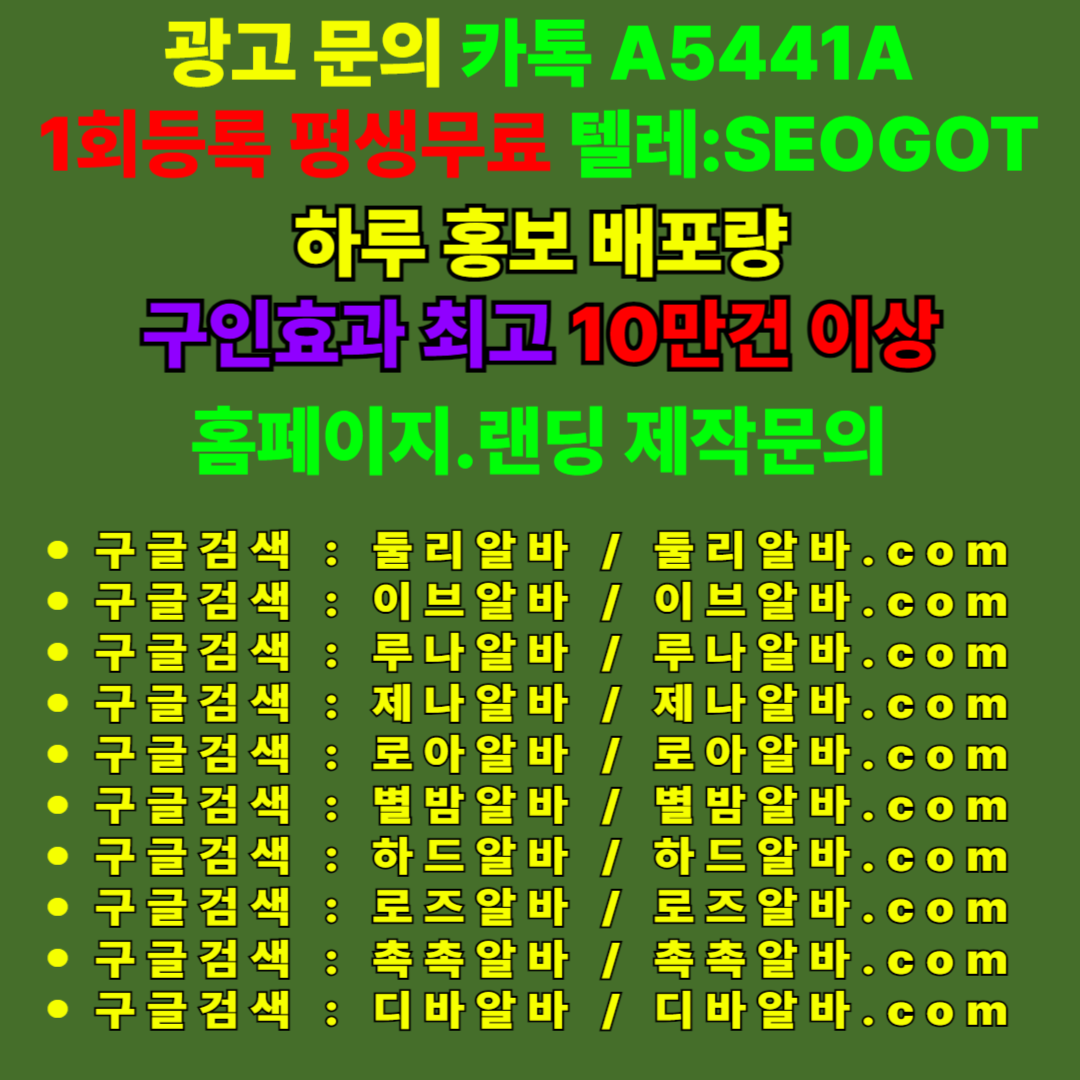
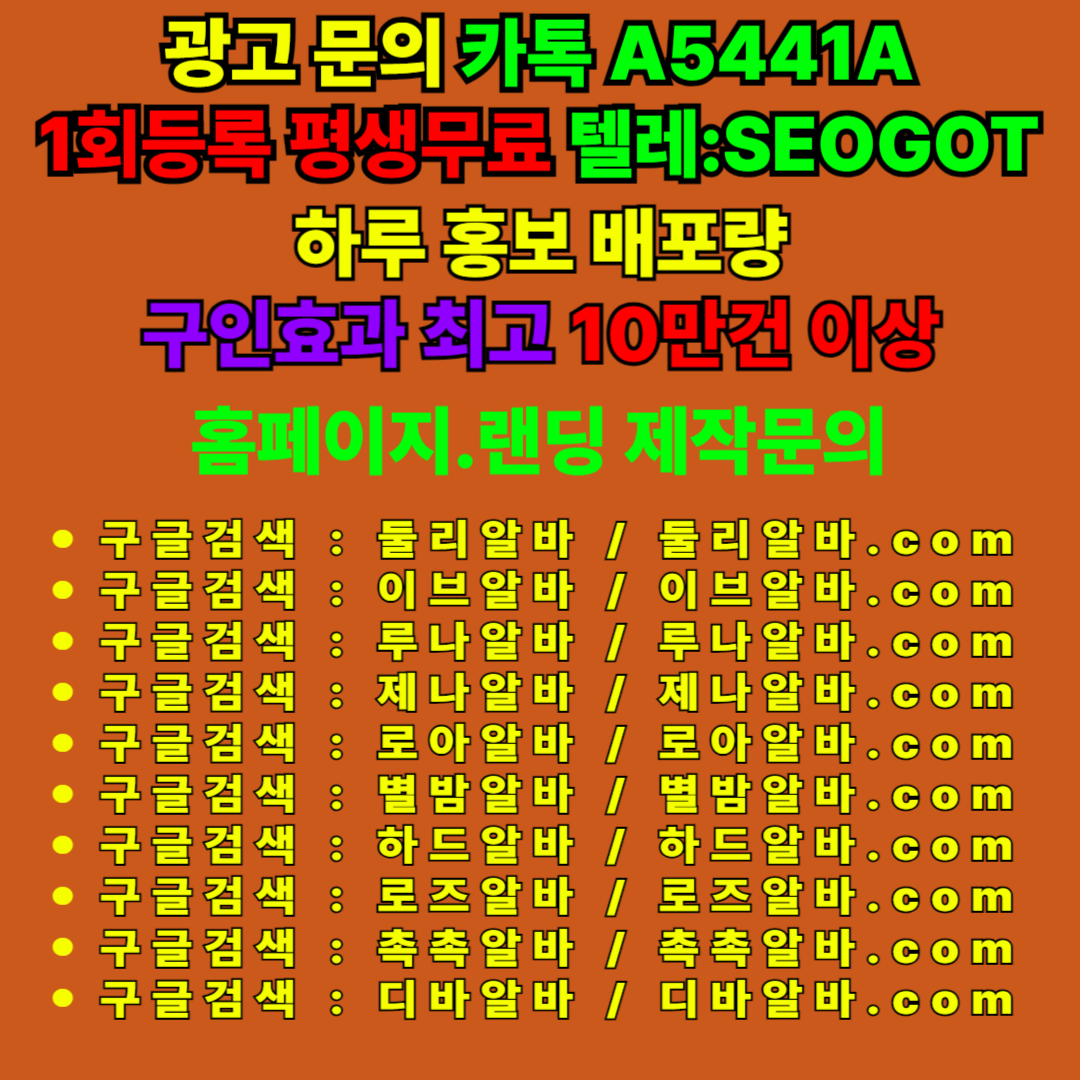














댓글목록
등록된 댓글이 없습니다.
